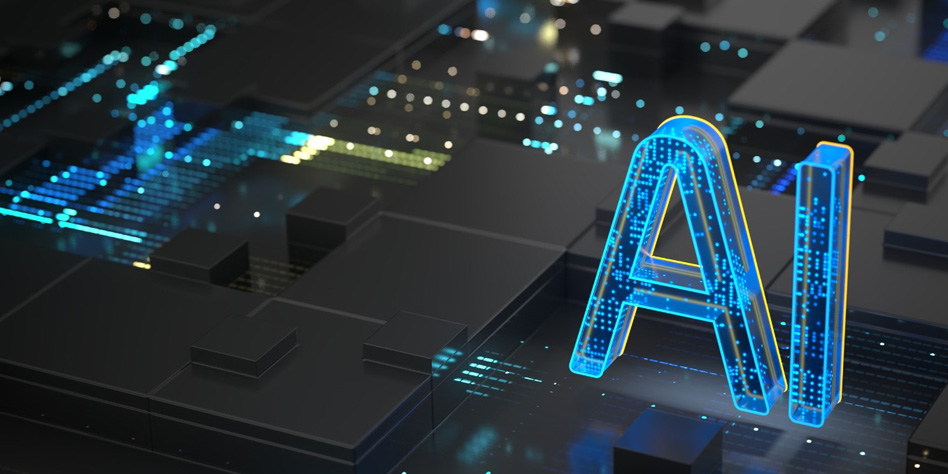
The phenomenal growth and increasing acceptance of cryptocurrencies underscore their transformative potential. Today, millions of individuals and businesses are active participants in this digital financial revolution. The journey comes with its own set of complexities, from predicting market trends to safeguarding assets in the face of growing threats. It is here that Artificial Intelligence (AI) emerges as a pivotal force.
AI is a tool that enhances the cryptocurrency ecosystem by providing solutions to a range of challenges and opening new doors of opportunity. This article will explore how AI is reshaping the crypto world, bolstering trading, security, automation, regulatory compliance, decentralized exchanges, and liquidity.
Predictive Analytics and Trading
AI’s (Artificial Intelligence) capability to analyze vast datasets, historical information, and real-time market data allows it to predict cryptocurrency price trends more accurately than traditional analysis. Investors can execute trades 24/7 through AI-powered trading bots and algorithms. They benefit from the rapid response to market changes while minimizing human errors and emotions that can influence decision-making. AI further contributes to risk management by enabling automated stop-loss and take-profit orders. It considers market sentiment by analyzing news, social media, and online forums, providing traders with a comprehensive view of the market's emotional climate and supporting more informed decisions, especially in the face of rapid price fluctuations.
Security and Fraud Detection
AI bolsters security and detects fraudulent activities effectively through its ability to swiftly analyze vast volumes of network traffic and data, identifying and mitigating potential threats. It leverages machine learning algorithms to detect suspicious patterns and anomalies, even those that might be too subtle for human detection. AI plays a crucial role in ensuring the security of cryptocurrency transactions. By employing advanced encryption techniques and real-time transaction monitoring, AI enables swift detection and prevention of suspicious activities. This means that cryptocurrency users can engage in transactions with a higher degree of confidence in their security, as AI works diligently to keep their digital assets safe from hacking attempts and fraudulent activities.
Smart Contracts and Automation
AI streamlines the often complex development and execution processes in smart contracts. It helps in identifying and fixing errors in the code, making them more reliable and secure. AI enables the automation of routine tasks within blockchain networks, allowing for quicker and more efficient execution of contracts. This not only saves time but also reduces transaction costs, making cryptocurrency operations more cost-effective. AI optimizes smart contract operations, bringing a new level of efficiency and trust to cryptocurrencies.
Regulatory Compliance
AI assists in ensuring that cryptocurrency operations adhere to evolving regulations and compliance standards, which can often be complex and variable. AI systems are particularly effective in monitoring and reporting transactions for regulatory purposes, helping authorities track potentially illicit activities. AI tools are employed to prevent money laundering and fraud by detecting suspicious patterns or transactions, thus contributing to the creation of a safer and more transparent cryptocurrency ecosystem that aligns with regulatory standards.
Decentralized Exchanges and Liquidity
AI in decentralized exchanges (DEXs) enhances the overall functionality and liquidity of these platforms. DEXs, which operate without centralized intermediaries, can benefit from AI by providing liquidity for various tokens. AI-driven algorithms and models enable market makers to optimize token prices and facilitate smooth trading experiences. AI contributes to improving peer-to-peer transactions and token swaps by matching buyers and sellers more efficiently, reducing slippage, and ensuring better token pricing, ultimately increasing liquidity and making DEXs more user-friendly and accessible.
Challenges and Future Outlook
AI's integration into the cryptocurrency space is not without its challenges. One significant concern is the risk of over-reliance on AI-driven decision-making, which could lead to algorithmic trading errors and unexpected market volatility. AI in crypto may exacerbate issues of market manipulation, as malicious actors may employ AI-driven strategies to deceive markets. Another challenge is the need for proper data quality and quantity, as AI algorithms depend on robust datasets for accurate predictions and analyses. Privacy concerns are also prevalent, given that sophisticated AI can be used to trace cryptocurrency transactions, potentially compromising user anonymity.
The future of AI in crypto holds immense promise. As AI and machine learning technologies continue to advance, they will likely become better equipped to handle these challenges. Future developments might include the integration of AI-powered decentralized applications (DApps) that leverage smart contracts for automated, secure, and efficient transactions. AI-driven blockchain solutions could contribute to further scalability, interoperability, and privacy in the cryptocurrency ecosystem. AI will remain instrumental in predicting market trends, managing risk, and providing valuable insights for cryptocurrency traders and investors. As the crypto space evolves, the synergy between AI and blockchain technologies will likely continue to drive innovation, making cryptocurrencies even more accessible, secure, and user-friendly for a broader audience.
